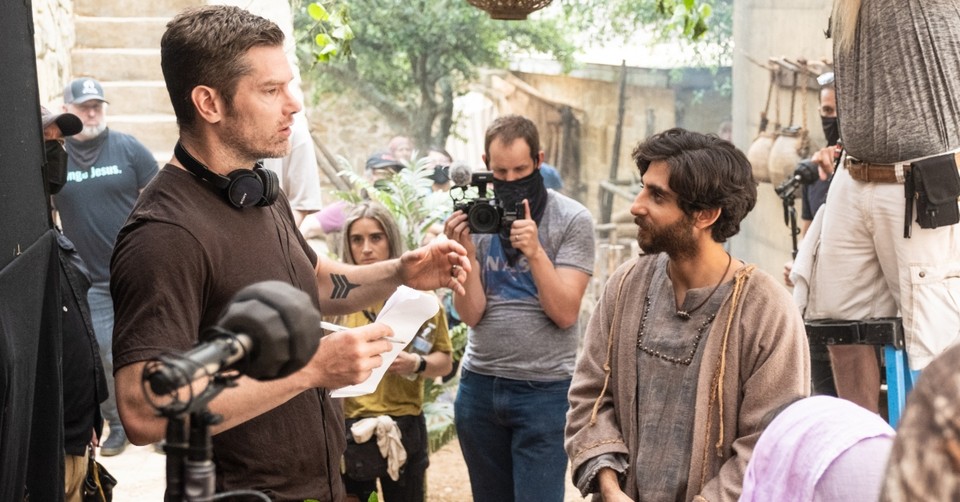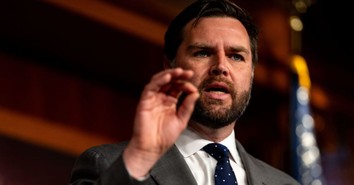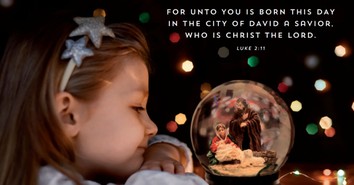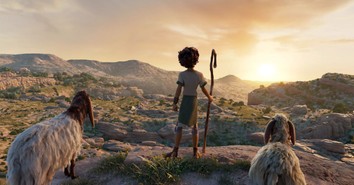‘Chosen’ Creator Dallas Jenkins Goes in Depth on Mormonism, Expresses Regret

Dallas Jenkins, the creator and director of the Bible-based series The Chosen offers his most in-depth comments about Mormonism and his theology in a new podcast, saying he “didn’t do the best job” of talking about the subject years back and hopes his latest round of remarks helps the public understand his position.
“The comment that started all this has been taken out of context, and I contributed to some of that,” Jenkins told host Cody Fields on the Westminster Effects Doxology Podcast.
Jenkins and Fields acknowledged they disagreed on Jenkins’ nuanced beliefs about his Mormon friends, yet they hope the podcast can be a model for others on how to discuss issues charitably.
Fields asked The Chosen creator to appear on the podcast to discuss Jenkins’ claim that some of his Mormon friends serve the “same Jesus” as he does. Jenkins is evangelical.
“I'm not speaking for the LDS church,” Jenkins told Fields, “nor am I speaking for, quote-unquote, evangelicals. … However, what I was saying was, I have some LDS friends – close, close, close friends, in fact, people that I work with, who I have spent years with, I have gone to Israel with, I have prayed with, I have been in their homes, we have talked deeply about these issues. All I'm saying is that … these people that I'm referring to love the same Jesus that I do.”
He added, “I've asked every difficult question. They've asked questions, we've gone back and forth, we have dug deep into it. And speaking for them specifically, I believe, and I'm willing to say that publicly and I'm willing to not sugarcoat it, I believe that we love the same Jesus.”
Fields then drilled down on LDS theology and Jenkins’ beliefs.
“You do not believe that Jesus Christ is a created being – correct?” Fields asked.
“Correct,” Jenkins answered.
“So He is eternally God, the Son eternally begotten of the Father. He has no beginning. Correct?” Fields asked.
“Yes,” Jenkins said.
The LDS church, Fields asserted, believes that “as man is, so God was; and as God is, so man may be.”
“I have brought up that phrase to my LDS friends before,” Jenkins said. “Their interpretation of what that means is different from what I thought it meant.”
Compared to 10 years ago, Jenkins later added, “I'm less comfortable claiming to have a full understanding of the doctrine of the LDS church as a whole and their personal doctrine.”
Jenkins, though, acknowledged that there are “things historically, and even things present” within the LDS church “that are far more problematic for me than from the Roman Catholic Church, far more problematic for me than even some of the evangelical denominations.”
Jenkins said he considers himself “reformed adjacent,” and a “four-and-a-half point Calvinist.”
He encouraged others to talk to a member of the LDS church directly.
“I came away from the conversations that I've had with them having a different understanding of what that meant and what they meant and what they believed than I had going into the conversation. And I thought, ‘Okay, I'm still not LDS and never will be. But I can see where you're coming from, I understand what you mean.’ It's not quite as, quote-unquote, bad as I thought.”
The Chosen, he said, is “not even .1 percent” influenced by the LDS church.
Fields told Jenkins the issue “may be a blind spot.”
“But at the same time, I appreciate the fact that you're willing to actually have the conversation in public,” Fields said.
Fields called it a “charitably, brotherly disagreement.”
Emphasizing his evangelical roots, Jenkins noted that he went to the University of Northwestern-St. Paul – a Christian school – and that he still uses a John MacArthur Study Bible when writing the scripts.
“My statement from five years ago, I think, has created some problems and caused some challenges that I wish I hadn't – and that I would, if I had to do it over again, [I would have] couched it better or said it differently or just not said it,” he said.
“That's probably caused more distraction than it was worth,” he said.
He added, “I regret that part of it.”
RELATED PODCAST:
Photo courtesy of The Chosen
Michael Foust has covered the intersection of faith and news for 20 years. His stories have appeared in Baptist Press, Christianity Today, The Christian Post, the Leaf-Chronicle, the Toronto Star and the Knoxville News-Sentinel.
Listen to Michael's Podcast! He is the host of Crosswalk Talk, a podcast where he talks with Christian movie stars, musicians, directors, and more. Hear how famous Christian figures keep their faith a priority in Hollywood and discover the best Christian movies, books, television, and other entertainment. You can find Crosswalk Talk on LifeAudio.com, or subscribe on Apple or Spotify so you never miss an interview that will be sure to encourage your faith.
Originally published March 19, 2024.







